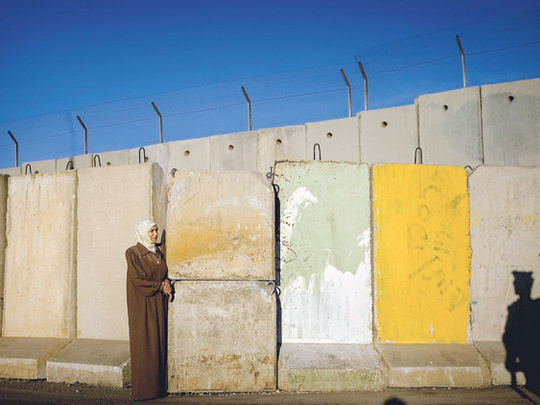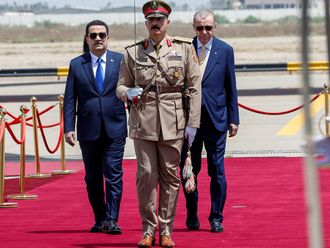
Gaza: Since Hillary Clinton, the US Secretary of State, announced the resumption of direct negotiations between Israel and Palestinian, it's all anyone in Gaza has talked about. What's more, relations between Hamas and Fatah have become steadily worse than they were before.
Hamas has indefinitely postponed a meeting with Fatah officials in Gaza City to discuss a unity deal over the decision of the Palestinian Liberation organisation (PLO) to re-enter direct negotiations with Israel.
Senior Hamas official Salah Bardawil says the PLO decision has, "made it too difficult" for his movement to meet with Fatah officials.
However, Hamas was not the only Palestinian faction to denounce the PLO's decision to launch talks with Israel at a US peace summit in September. Al Ahrar group, an allay of Hamas, issued a statement calling the decision a "subjugation to American decisions".
Hamas leader Esmail Haniya told a crowd at Al Khulafa Al Rashidin mosque in Jabaliya that negotiations would restore neither rights or religious sites, and that the Palestinian people "should trust God, who will be an ally of the Palestinians".
Mohammad Awad, a baker in the beach refuge camp bakery, said: "I had no idea that the negotiations with Israel stopped in the first place, I don't really care any more, whether or not direct negotiations take place."
Om Mohammad, an employee in the public sector in the Hamas government is equally disillusioned: "Nothing good came out of the negotiations; they've been going on for years and years." she said.
Many people believe that the Israeli colonists refusal to stop building colonies, which was a key condition set out by the Quartet, would kill the direct negotiations even before they began.
Jamal Majdalawi, a leader in the Popular Front for the Liberation of Palestine, in the Gaza strip, which is the biggest left-wing party in Palestine, said: "The direct negotiations between the Israeli government and the Palestinian authority won't work; the Israelis have not given any indications that they will. These negotiations are a way for the Israelis to stall, so they can continue building the settlements, until eventually we find ourselves living on small pieces of land, totally controlled by the occupation and with our dreams of an independent Palestinian state shattered.
Dr Faisal Abu Shahla, a parliament member from the Fatah party said: "For the first time, there's a schedule for the negotiations, which means this is the last chance for peace."
Shuaib Abu Jahal, a Palestinian journalist said: "I'm optimistic about the direct talks."











